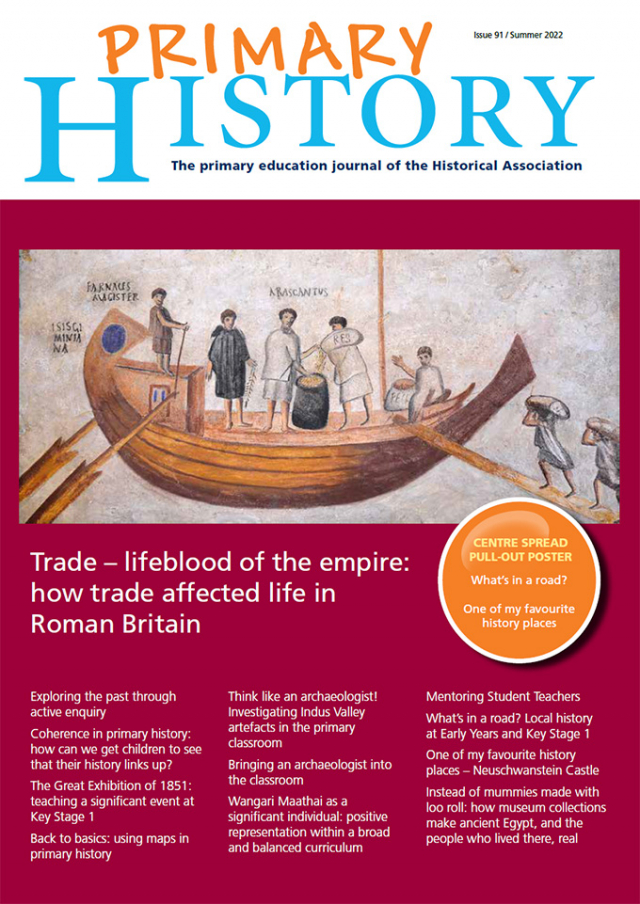Primary History 91: Out now
The primary education journal of the Historical Association

Editorial
The Platinum Jubilee weekend has vanished in a swirl of colour, noise, pomp and silliness although I suspect Her Majesty and Paddington Bear’s tea party will live on for a long time. The second half of the summer term is upon us with sports days, leaving dos and the joy of report writing. Perhaps this year we may be able to return to much loved and much missed holiday haunts. I certainly may commit a violent act if a Covid surge keeps me from the south west of France!
The holidays are important times for both children and staff. They are times to switch our minds from our usual tasks, to remember family, to explore a new place or become reacquainted with an old one, to do something different perhaps. As teachers we should not feel guilty for taking this time – after all we will spend some of it tidying up from the old year before planning for the new.
Good teachers are interesting people who gather their experiences to share with their children. Times to rest, recuperate and become reinvigorated are vital for us and those we work with.
I am aware that the long summer days can be difficult for children and parents. Perhaps finding out and advertising the free activities within your area could help so that summer becomes a time of exploration for more children.
While accountability and prescription are important for quality assurance, they also bring with them challenges and sometimes constrain what we might do within the classroom. Free yourselves and children from the day to day routines just for a little time.
Soak up some sun, visit somewhere interesting or lounge around reading that book you have looked at all year. Eat something you haven’t tried before, slip back to a favourite restaurant or dance the night away … on a weekday!
Enjoy your summer break (it is not long now). After another challenging and exhausting year you have definitely deserved it. Happy Holidays.
In this edition
This edition is bursting with a wide range of articles. You can trace trade routes within the Roman Empire. Ilona Aronovsky looks at how we might explore the perforated pots of the Indus Valley civilisation and interviews Akshyeta Suryanarayan, an archaeologist currently investigating this fascinating civilisation. We have some interesting significant individuals and events for Key Stage 1 with Wangari Maati from Ailsa Fidler and The Great Exhibition from Heather de Silva. Ideas for the early years focus on artefacts and found objects in the local area (Susie Townsend). Tim Lomas considers what we mean by coherence in history and why this is important while also providing suggestions for using maps. The Fitzwilliam Museums gives you some insight into their collection and how they use it. We also have some useful advice for those who mentor student teachers.
Next edition, look out for: Ideas for teaching about the British Empire, creating exciting and effective displays, using timelines, The Gunpowder Plot for Key Stage 1 and the Shang Dynasty for Key Stage 2. You might also want to find out about the history of boots and shoes and some ideas surrounding Remembrance.

